How Tacurong City Transformed Adolescent Health
Tacurong City sits at a crossroads in South Central Mindanao, serving as Sultan Kudarat’s commercial hub. It’s the smallest but most crowded area in the province, with over 109,000 people. As the main center for healthcare and education, it draws communities from nearby provinces. Yet growth brings challenges, especially in security and public health. The city urgently needs more accessible and complete family planning services.
Finding the Gaps
In 2021, Tacurong joined The Challenge Initiative (TCI), a global program implemented in the Philippines by the Zuellig Family Foundation (ZFF). It helps local governments launch and sustain effective family planning (FP) and adolescent and youth sexual and reproductive health (AYSRH) solutions.
Related article:
Through a Program Design Workshop, leaders examined what blocked AYSRH and identified action items to improve the status quo:
- Strengthening the AYSRH committee. It existed in Tacurong City but needed clearer structure and purpose.
- Enhancing training for health staff on AYSRH. Providers needed skills to talk comfortably with teens.
- Developing adolescent-specific strategies beyond DOH (Department of Health) programs as most services focused on adults and children.
Building Stronger Leadership
After the workshop, former Mayor Lino Montilla formed the City Leadership Team (CLT). This created a strong inter-agency system that united different departments and mobilized barangay officials and youth groups. Gary Bañas, Social Worker and Population Program Officer, recalled, “The program design was followed consistently, which integrated adolescent programs across different sectors, especially schools and communities. Collaboration between the LGU (Local Government Unit), Commission on Population and Development (CPD), DOH, and partners made it possible to accelerate adolescent-friendly health services in the city.”
Through TCI, the city built both structure and skills. Coaching helped the CLT lead and sustain changes. Current Mayor Lina Montilla credits TCI for knowledge that strengthened her leadership and helped Tacurong champion AYSRH more effectively.
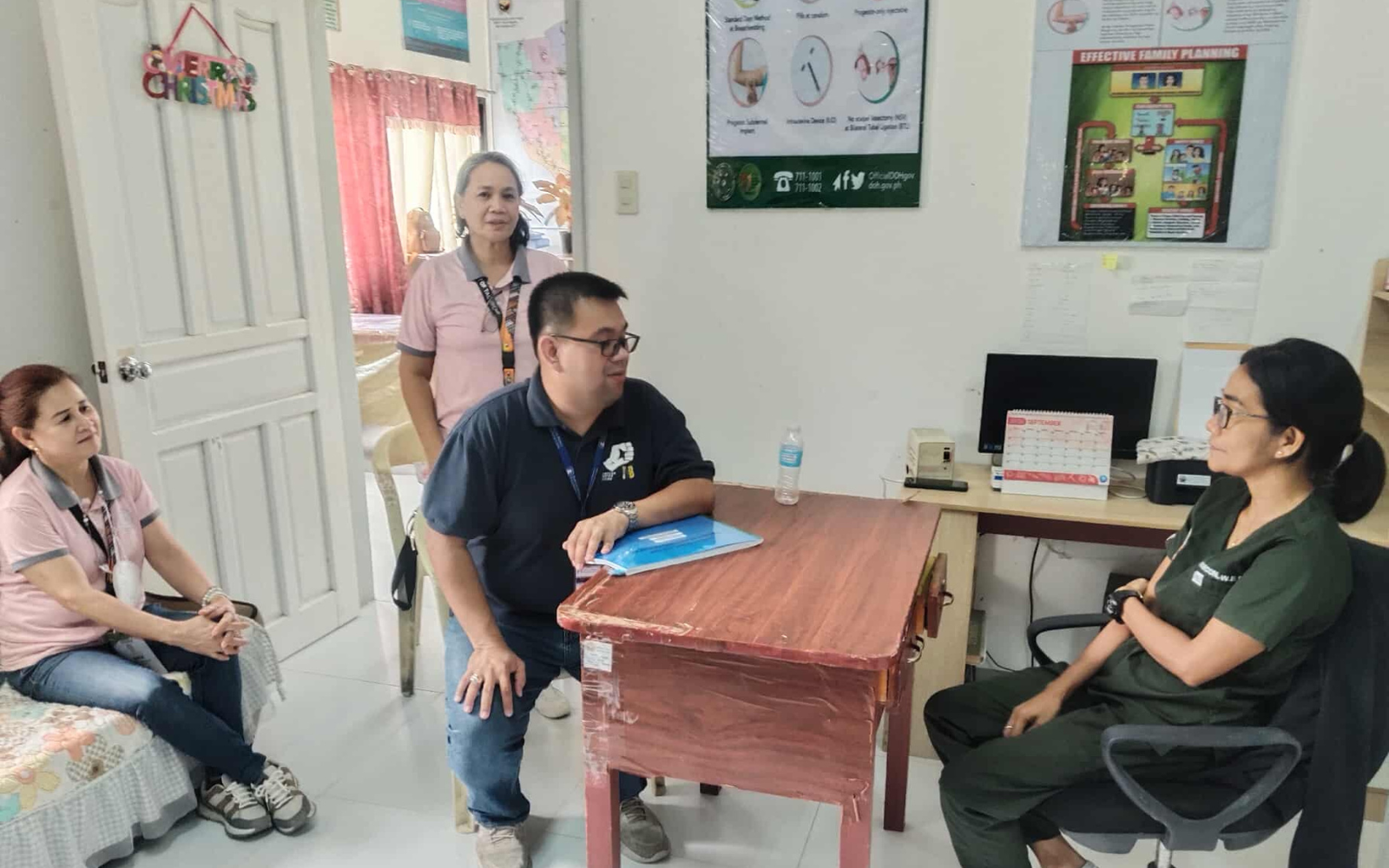
Creating Services Teens Can Trust
A major step was establishing adolescent-friendly health facilities (AFHFs). These provided resources and trained staff ready to serve without judgment. Nurse and Family Planning Coordinator Gina Ramiscal noted that few young people sought care before. “They either didn’t know services existed or were afraid they would be judged,” she recalled. Adolescent Sexual and Reproductive Health Coordinator Richyle Mae Gallenta added, “Young people used to visit health centers alongside regular patients, which created discomfort because there was no privacy.”
The city expanded programs including the Buntis Class and Healthy Young Ones, giving young people health information and safe spaces to learn.
Young mothers felt the impact directly. Ana*, 19, and Bella*, 22, shared their stories. A felt fear, regret, and uncertainty when she discovered her pregnancy. She felt grateful for Laarni Ecalla, midwife from the Upper Katungal Health Center and President of Midwives in Tacurong. Together with Kagawad (“barangay councilor”) Expedito Ramay Jr., Chairperson on Health, Ecalla provided counseling and seminars for young mothers. B learned from her experience to delay pregnancy, warning it can be extremely difficult both physically and financially.
Kagawad Ramay expressed hope for livelihood programs for teenage mothers with the Department of Social Welfare and Development (DSWD). “We believe young mothers should become champions who can encourage and support other teenage mothers in our community,” he said.
Mayor Lina Montilla stressed working closely with the Department of Education (DepEd). Guidance counselors and teachers became key allies in reproductive health education. As she emphasized, “By working with schools and guidance counselors, we ensure that young people find trusted adults they can turn to for advice on health and family planning.”
Reducing Reliance on Outside Help
To secure lasting impact, Tacurong passed local ordinances that institutionalized AYSRH. The city set aside dedicated funds for family planning and adolescent health.
“Family planning and adolescent health are now priorities in Tacurong. These programs are embedded in the Gender and Development (GAD) funds and the city’s budget. We are assured of sustainability because policies are in place,” Mr. Bañas noted.
Mayor Montilla echoed this commitment: “Our ordinances and teen centers are not just policies on paper; they are lifelines. We invested city funds so that services will continue regardless of changes in administration or external programs.”
Seeing Real Results
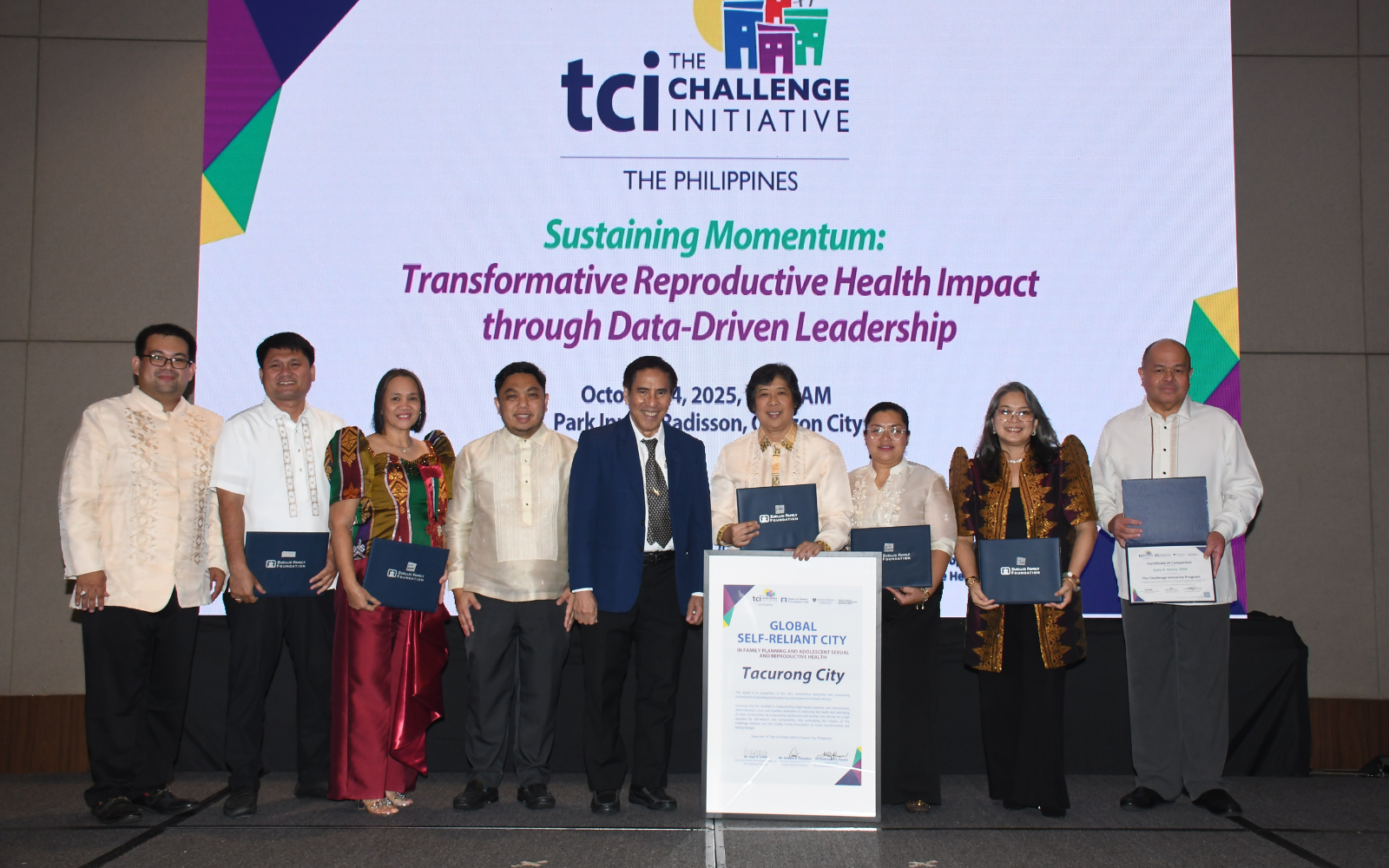
By 2024, Tacurong’s adolescent birth rate (ABR) dropped significantly compared to 2020, from 34 births to 26. The modern contraceptive prevalence rate (mCPR) stayed above the national target of 30%, showing greater trust in available services.
Community education and youth symposiums shifted attitudes at home. As Ms. Ecalla shared, “Pregnancies among very young girls have dropped. Parents are more open to talking about reproductive health. The conversations are happening in barangays where adolescents visit health facilities together with their parents and are directed to counselling rooms for additional support.”
Today, all health facilities in Tacurong are certified as adolescent-friendly. Every staff member is trained to provide these services.
The city also invested in data monitoring. Regular checks helped the team track progress and adjust. As Ms. Gallenta put it, “Data has become our guide. It tells us what is working, where we need to improve, and how we can better serve young people.”
Making It Last
Tacurong’s transformation is not temporary. With supportive policies, dedicated budgets, and teen centers, the city built a system meant to endure. Challenges remain. Ms. Ramiscal noted, “Program coordinators wear several hats. No one has a role specific to family planning and adolescent health.” Still, the city stays determined to reduce adolescent pregnancies and prevent repeats among young mothers.
Tacurong’s journey shows that sustainable progress is possible. The city moved from fragmented, externally dependent programs to a resilient, locally led system. The lesson is simple yet powerful: when leaders prioritize adolescent health and invest in both people and systems, communities thrive.
As Mayor Montilla concluded, “Every adolescent deserves the knowledge, services, and support to build a healthier future. When we empower young people with knowledge about reproductive health, we don’t just protect them, we secure the future of Tacurong’s families.”
* Name has been changed to protect the identity of the young mothers.
Banner photo: Courtesy visit to Tacurong City, where Barangay Enrique JC Montilla Health Center and Grino Super Health Center were recognized for delivering high-quality family planning services to women of reproductive age and adolescents. They were welcomed by City Councilor for Population Lalaine Montilla, together with Councilor Harvey Legas of the Health Committee.
Listening First, Leading Next: A Local Hero for Youth in Southern Leyte
For over ten years, Keisha Batalon served the people of Padre Burgos, Southern Leyte, as a Medical Technologist at the local Rural Health Unit. She knew the community’s health challenges intimately. In 2023, she felt a calling to reach beyond clinical care and engage directly with young people.
When she was named Local Youth Development Officer and Health Education and Promotion Officer, Keisha saw an opportunity to not only provide health services, but to listen, guide, and empower adolescents to take part in shaping their own futures.
Her journey with the Zuellig Family Foundation (ZFF) under its Expanded Youth Leadership and Governance Program (EYLGP) began with learning spaces that shifted her perspective. “I can say that before EYLGP, I already had passion in youth leadership,” she shares. “But after EYLGP that ‘passion’ to lead activities turned into leading with purpose. For me, it was no longer about just programs, it is now about transforming lives. I began to understand that leadership is not about title, it’s about service. EYLGP was such a blessing because since then my heart for youth empowerment became more grounded in humility, accountability, and purpose.”
Related articles:
- Southern Leyte Shows Progress in Reducing Teen Pregnancies
- Serving One’s Community Has No Age Limit: Improving Adolescent Health and Rights in Leyte
- Emilio Galangue: Empowering Youth in Basey, Samar
Keisha deepened her understanding of the struggles and hopes of young people. She discovered that real change begins not with programs imposed from above, but with listening closely. “I have observed that when young people feel safe, they are more likely to openly talk about their thoughts, ideas, concerns, and struggles without fear of judgment, discrimination, or harm.” This insight became the foundation for her work, designing initiatives that respond to their lived experiences.
By mid-2024, she was translating these lessons into action. She led community roll-outs of EYLGP modules in several barangays. That same year, she helped open the Padre Burgos Teen Center, a safe space where adolescents could access health services, talk freely about their concerns, and feel seen. She also spearheaded the local adaptation of TrucKABATAAN, a mobile medical mission that brought essential health services directly to adolescents who might otherwise go without.
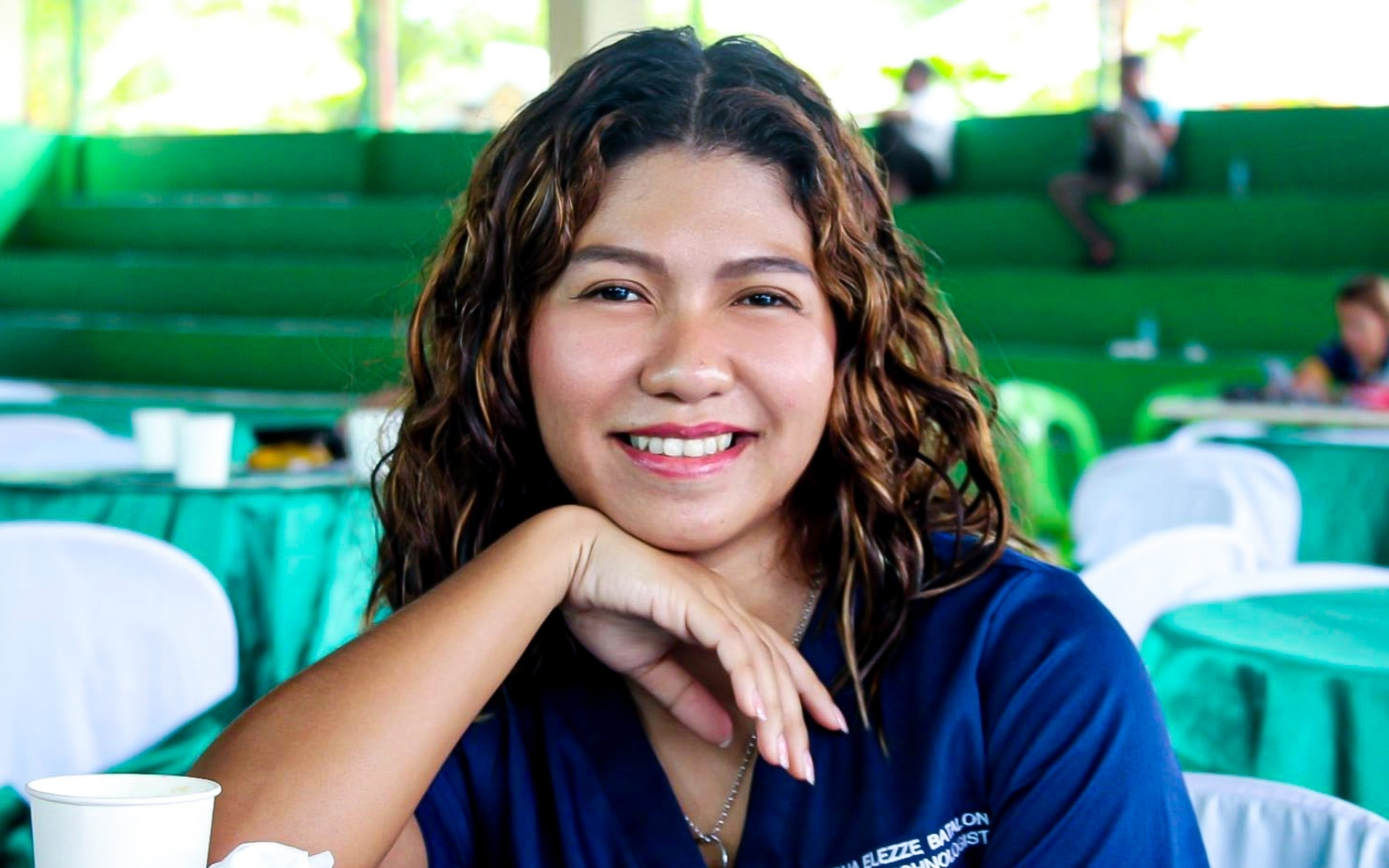
Keisha’s approach was always personal. She mentored youth in Barangay Cantutang as they ran their own version of the Commission on Population and Development project, “Isip-isip Before You Unzip,” creating spaces for honest conversations about relationships, sexuality, and life choices. She organized events to celebrate youth contributions, and worked alongside the Local Youth Development Council to advocate for ordinances that protected young people—on curfews, internet access, and safe spaces in their community. Slowly, she saw more adolescents stepping forward and voicing their ideas.
For Keisha, the true reward is found in these connections. “What I am most proud of as a youth leader isn’t the awards, titles, or recognition but it’s the trust, connection and relationship I’ve built with the youth,” she reflects. “It warms my heart that many of them see me not just as an officer, but as their ‘ate’—someone they can approach whenever they need assistance, advice, or simply someone who will listen. Receiving messages, either personally or via social media, saying that I’ve inspired them, even in small ways, to become better students and leaders reminds me that leadership is influence, and I’m grateful to be part of their journey.”
By 2025, the impact was visible. Attendance at youth events doubled, and trust between the community and young people grew. Most strikingly, the number of live births among 15 to 19-year-olds in the municipality dropped from 13 in 2022 to just four in 2025.
Yet Keisha knew the work was far from over. She faced challenges in engaging youth who felt apathetic, reaching out-of-school adolescents, and sustaining participation over time. Still, she remained guided by a simple principle: empathy matters more than criticism.
“My hope for the youth of Padre Burgos is that they grow into confident, compassionate, and purpose-driven leaders. Young people who don’t just dream of change, but become the change for our community,” she adds, “And as long as I am given the opportunity to serve, I will continue walking beside them, guiding, mentoring, and believing in them.”
Photos from: Municipal Local Government Unit of Padre Burgos, Southern Leyte
Authors: Krizzia Esperanza, ZFF Corporate Communications Associate; Armand Duque, ZFF EYLGP Associate
ZFF Receives Drs. Jess and Trining de la Paz Award from Ateneo de Davao University
On behalf of the Zuellig Family Foundation, Chairman Dr. Manuel Dayrit accepted the Drs. Jess and Trining de la Paz Award from Ateneo de Davao University on February 14, 2026. In his speech, he honored the couple’s pioneering spirit in community health. He recalled how, as a young intern in Davao, he was welcomed into their home, where conversations over breakfast and dinner stretched from healthcare to community life.
Related article:
“They would welcome me, and it was just like yesterday when I recall we would be seated for dinners and breakfasts in their veranda dining room in Matina, and we would be discussing all sorts of things—from healthcare, to ordinary things that happen in the country, to community health.”
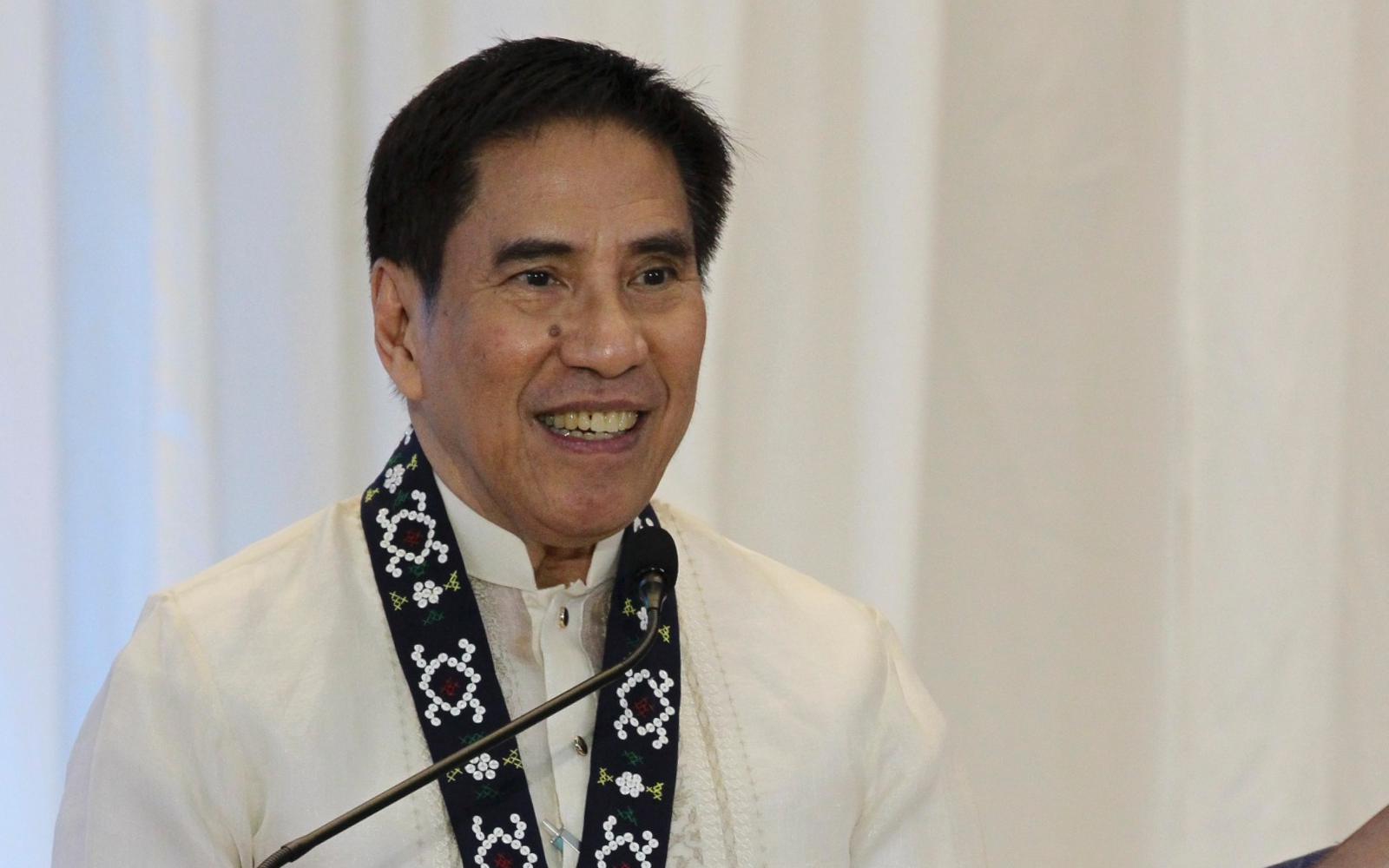
“Jess and Trining de la Paz were visionaries, and their legacy lives on,” he emphasized, noting that the recognition belongs not only to the Foundation, but to the mayors, health officers, youth leaders, and community workers who have walked with ZFF in advancing community health.
As he closed, Chairman Dayrit reaffirmed ZFF’s mission: “As we accept this award, we recommit ourselves to the values of compassion, service, and integrity.
Banner photo, from left to right: Benjamin Lizada, Chair of the Ateneo de Davao University Board of Trustees; Rev. Karel San Juan, University President; Alma de la Paz; Dr. Manuel Dayrit, Chair of the Zuellig Family Foundation; Dr. Joyce Viar, Rachel Paradiang, and Samantha Morales, ZFF Representatives; and Daniel de la Paz.
Photos from: Ateneo de Davao University
Author: Kristine Paula Bautista, ZFF Public Engagement Associate
Faith, Culture, and Care in Isabela de Basilan
Isabela de Basilan draws strength from its diversity. The city is home to 130,379 people who speak Chavacano, Tausug, Yakan, and other languages. Many residents practice Islam, while others come from Indigenous and Christian communities. This mix of cultures now shapes how the city delivers family planning (FP) and adolescent and youth sexual and reproductive health (AYSRH) services.
In August 2023, Isabela de Basilan joined The Challenge Initiative (TCI), implemented in the Philippines by the Zuellig Family Foundation (ZFF). TCI supports local governments in strengthening FP and AYSRH programs. Earlier that year, Mayor Sitti Djalia Turabin-Hataman, known as Mayor Dadah, had already set the direction. In February 2023, she signed Executive Order No. 005, creating the City Leadership Team (CLT) to guide and coordinate reforms across the city.
Instead of treating faith and culture as obstacles, city leaders chose to work with them.
Related article:
- Nine Cities Recognized as Global Self-Reliant Cities in Reproductive Health
- Ang Pamilyang Planado, Panalo: Isabela de Basilan’s Efforts in Family Planning
Naming the Challenges
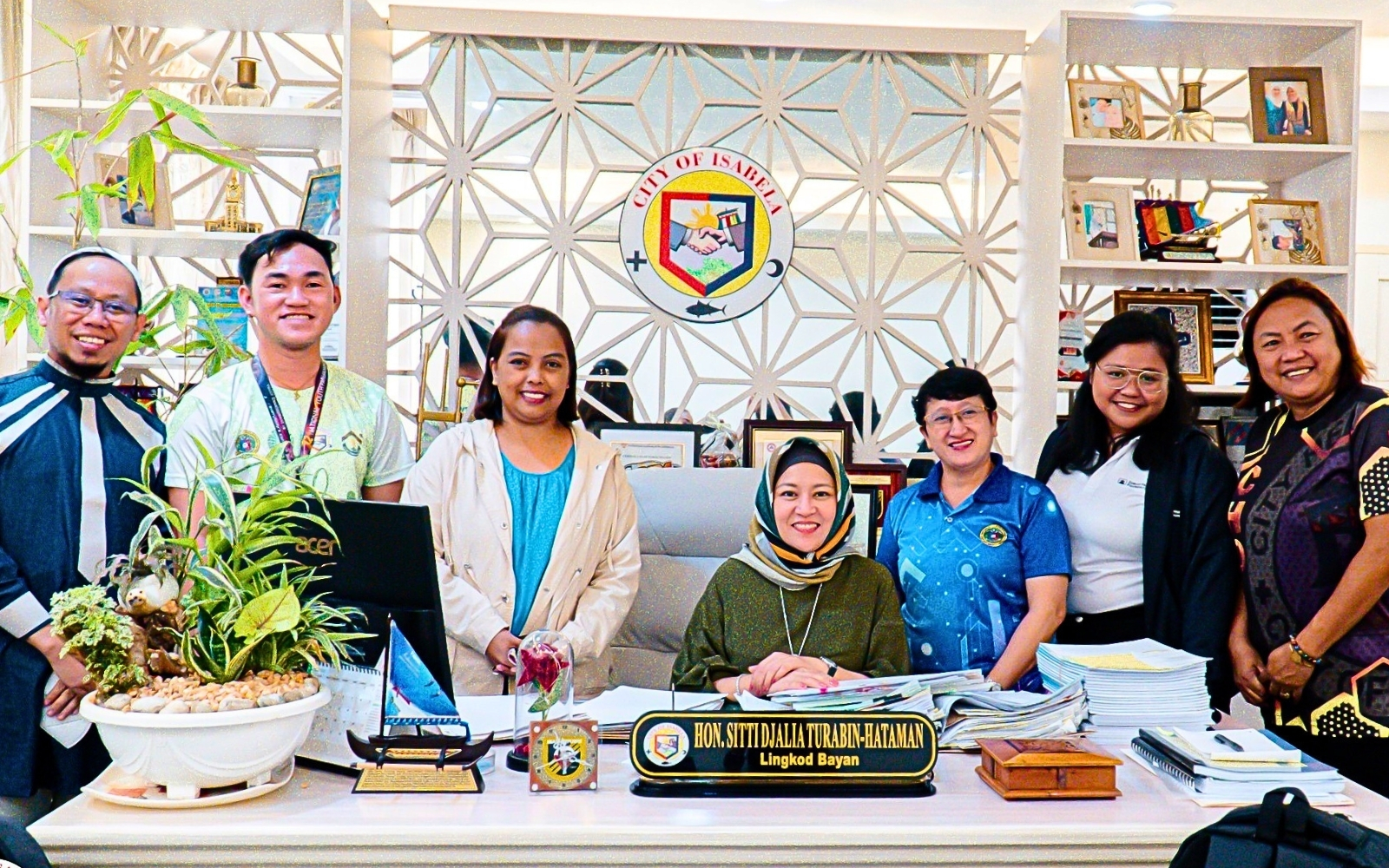
In October 2023, 21 members of the CLT took part in a Program Design Workshop. During the sessions, they openly examined gaps in the local health system. By November 2023, the team translated these discussions into an approved Work and Financial Plan.
The workshop surfaced several concerns:
- Governance gaps: The city lacked a permanent body focused on FP and AYSRH. Offices worked in silos, and the city had no digital health information system.
- Service delivery issues: Health workers needed more training to counsel clients and provide modern contraceptive methods such as Progestin Subdermal Implants (PSI) and Intrauterine Devices (IUDs). Island communities struggled with irregular access to supplies. The city also had too few Levels 1 and 2 Adolescent-Friendly Health Facilities (AFHF).
- Social and cultural barriers: Advocacy activities reached only some communities. Early marriage and teenage pregnancy remained sensitive and deeply rooted concerns.
- Youth support gaps: The city had limited numbers of trained peer educators and safe spaces where adolescents could seek help.
These gaps affected island and remote communities the most.
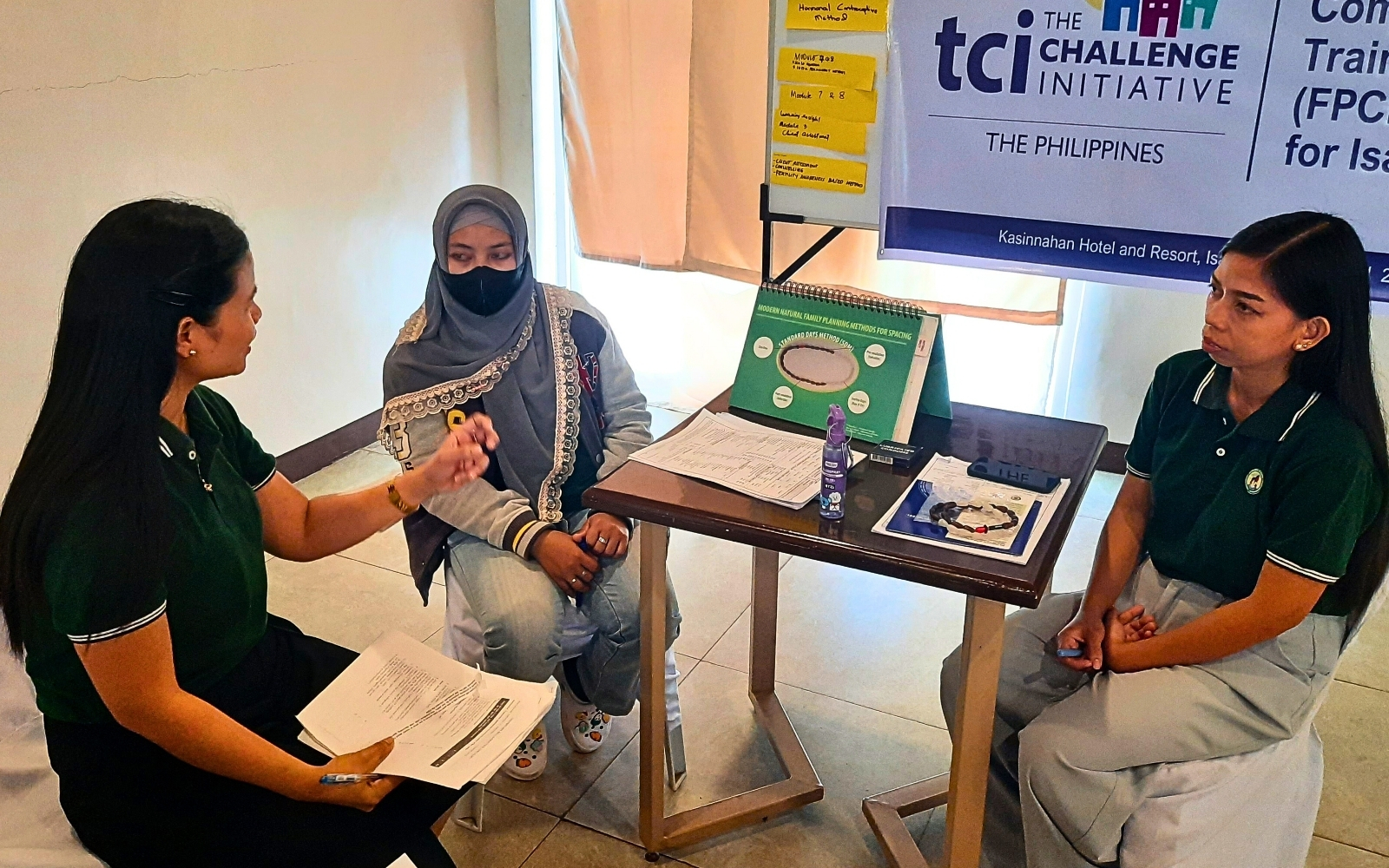
The city united around a shared vision: “By 2029, young Isabeleños will be empowered, responsible, well-informed and engaged in AYSRH and FP with good governance and through a collaborative, intercultural, and sustainable approach towards living their lives to the fullest.”
Using Technology to Improve Care
The city strengthened its response by adopting Wireless Access for Health (WAH), a digital platform that now serves as its first Electronic Medical Records (EMR) system. Health workers now use real-time data, track family planning counseling sessions more accurately, and link records with PhilHealth eClaims.
Health indicators show early progress. Since 2020, the adolescent birth rate has steadily declined and remains within the national target of fewer than 37 births per 1,000 adolescents. Although the modern contraceptive prevalence rate has not yet reached the 30% benchmark, earlier gains point to strong potential if the city sustains its investments.
Creating Space for Faith and Dialogue
In 2024, during the 2nd Indigenous Peoples Celebration, the city organized its first Adolescent Pregnancy Summit under the theme “Empowering Leaders: Indigenous Voices in Adolescent Pregnancy Prevention.” The event brought together community leaders, Islamic scholars, and health advocates for open and respectful dialogue.
Atty. Nur-Aiza Gagarra, Provincial Cooperative Officer and FP champion, presented “Early Pregnancy and Islamic Belief (Fatwa)” and linked Islamic teachings with Republic Act No. 11596. Jasmin Teodoro, Executive Director of Pinay Kilos Inc., led sessions on AYSRH and facilitated a “speed dating” activity to help participants practice healthy communication.
Participants ended the summit with a hand-painting ceremony led by Miriam Suacito, Executive Director of Nagdilaab Foundation Inc., to affirm their shared commitment to protecting young people.
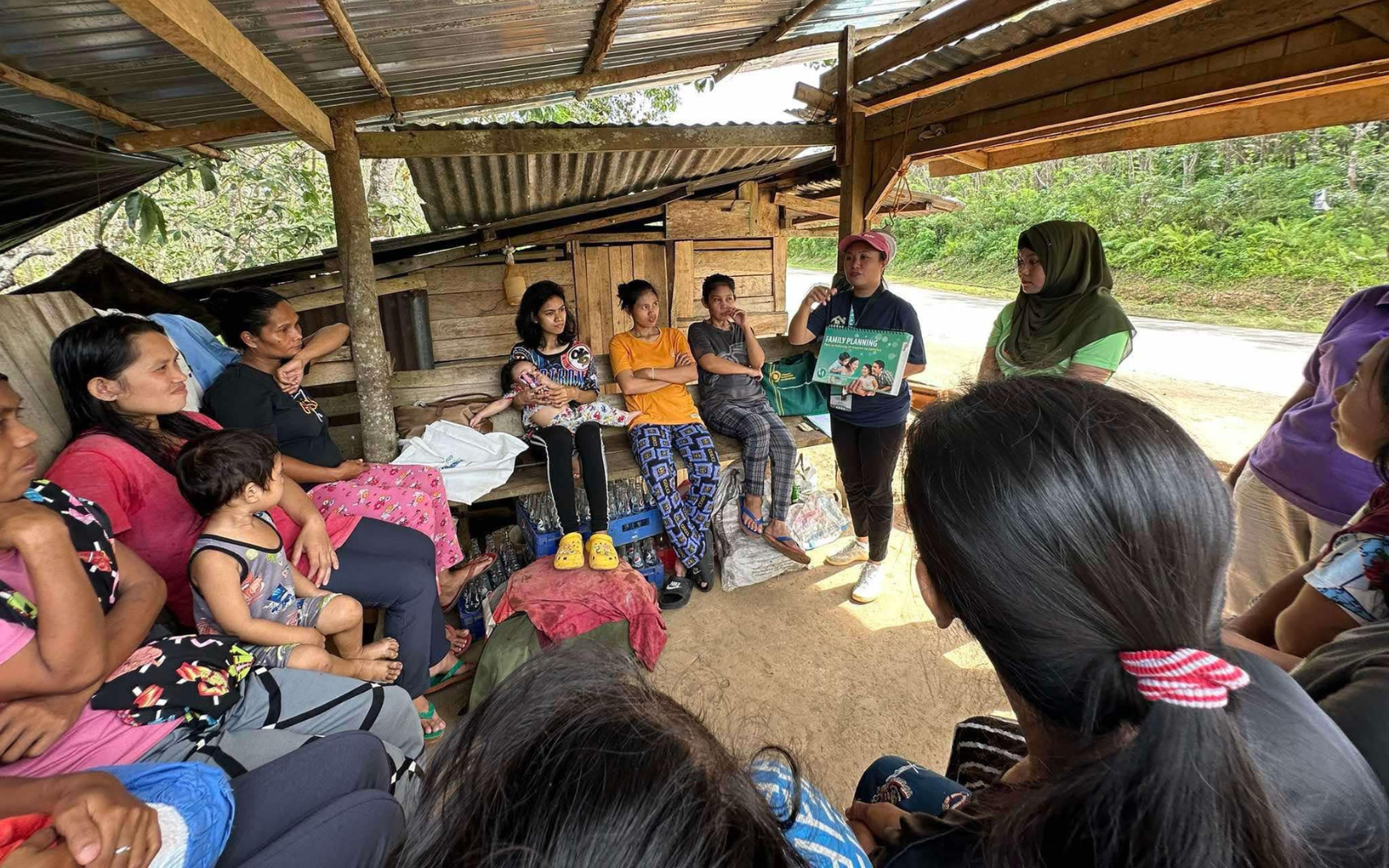
Letting Young People Lead
The Local Youth Development Office and the Sangguniang Kabataan (SK) Federation mobilized youth groups, especially on Malamawi Island, to address early pregnancy and other adolescent concerns. SK chairpersons allocated funds through their Comprehensive Barangay Youth Development Plans and Annual Barangay Youth Investment Programs.
These investments strengthened Teen Centers, School-Based Teen Centers, and the Information Service Delivery Network (ISDN) for Adolescent Health and Development. These spaces allow adolescents to seek services without fear or judgment and help peer educators reach other young people in culturally sensitive ways.
Building Systems That Respect Diversity
Today, the CLT functions as a strong coordinating body. City offices use Gender and Development (GAD) funds to sustain programs across communities. At the same time, the EMR system records not only medical data but also language needs and cultural considerations, helping providers deliver more responsive care.
Isabela de Basilan shows that cities can pair modern systems with cultural respect. Its experience proves that progress does not require communities to abandon their beliefs. Instead, it calls on health systems to listen, adapt, and work closely with the people they serve.
Breaking the Cycle: How Mandaluyong is Addressing Adolescent Pregnancy
Mandaluyong City often stands out as a story of economic growth. In 2002, the Department of Trade and Industry (DTI) and the Asian Institute of Management Policy Center named it the “Tiger City” of Metro Manila. More than two decades later, the city continues to rank among the top five highly urbanized cities (HUCs) in per capita gross domestic product.
As the city grows, many residents still struggle. Migration continues to rise, informal settlements expand, and a large transient population makes long-term programs harder to sustain. One of the city’s most urgent concerns is adolescent pregnancy.
Related article:
- Nine Cities Recognized as Global Self-Reliant Cities in Reproductive Health
- From Momentum to Milestone: Mandaluyong City’s TCI Journey
Mandaluyong has kept its adolescent birth rate (ABR) below the national target, but progress has remained uneven. The ABR reached 19% in 2020, dropped to 13% in 2021, then climbed again to 18% in 2022. Poverty, unstable housing, and cultural differences linked to migration place adolescents at greater risk. For many young people, this reality means broken families, stigma when seeking health services, and limited spaces to talk openly about adolescent and youth sexual and reproductive health (AYSRH).
The city also struggles to improve the use of modern contraceptives. Uptake remains below the national target of 37%. National policies restrict adolescents’ access to contraception, allowing only age- and development-appropriate counseling, which limits prevention options.
Working with Communities
City Health Officer Dr. Arnold Abalos partnered with The Challenge Initiative (TCI), implemented in the Philippines by the Zuellig Family Foundation, to strengthen the city’s response to adolescent pregnancy. Together, they advanced Community Group Engagement, an approach that brings communities together through dialogue and education to promote healthy sexual relationships and influence social norms.
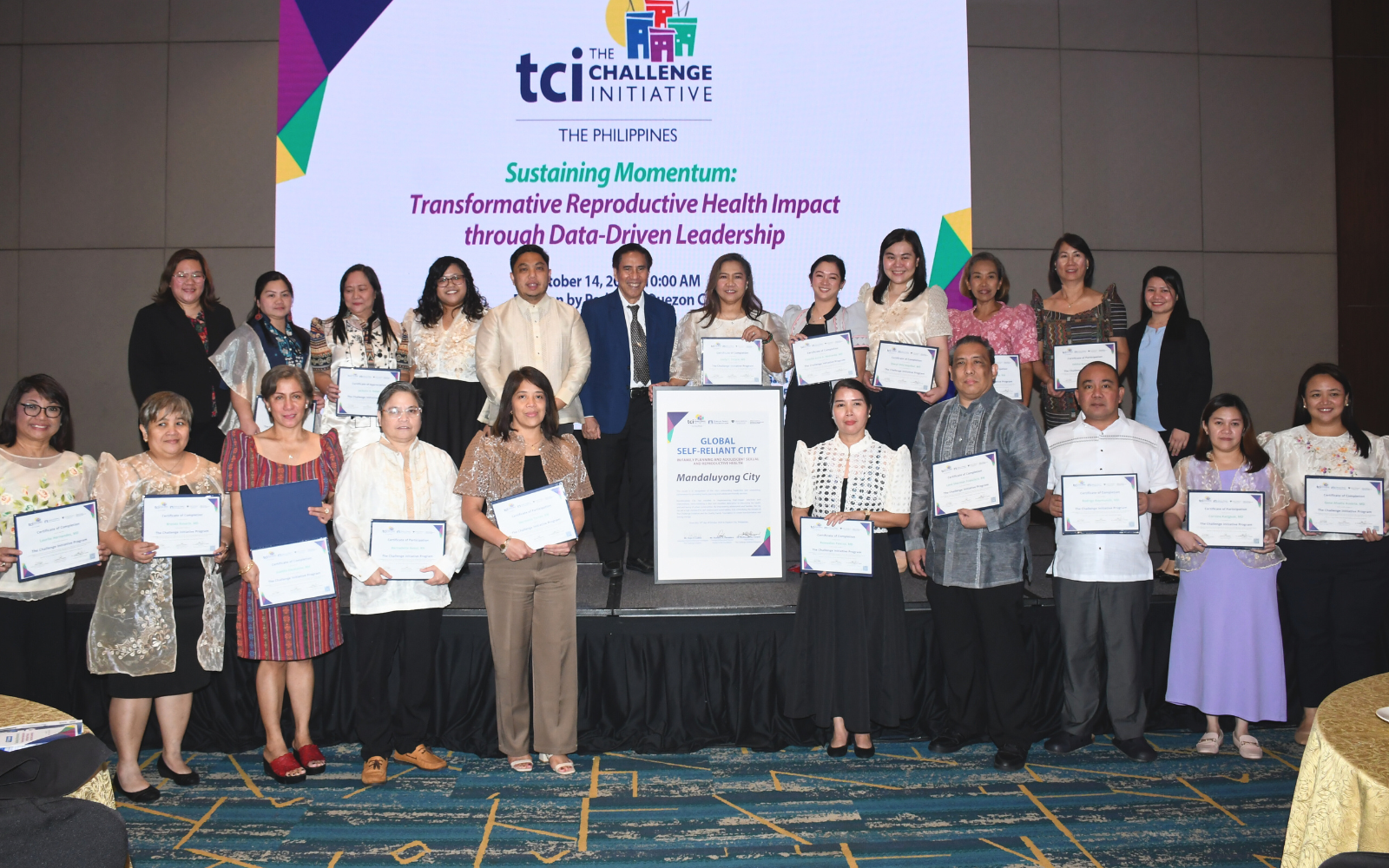
The city focused its efforts on three groups: adolescents, their peers, and the care providers who serve them.
Adolescent Health and Development (AHD) Program Coordinator Dr. Camille Almodiente-Mascardo shared, “Finding the right balance is really the key. One of our key messages is: they still have a choice and a future.”
Reaching Adolescents Where They Are
Mandaluyong invested in community-centered strategies that respect adolescents’ age, development, and lived realities. One key initiative, the annual Adolescent Congress, brings together around 1,000 public school students from across the city.
The congress gives young people a safe space to talk openly about sexuality, reproductive health, and life skills. Sessions on AYSRH and development help students understand physical, mental, and sexual changes. Activity booths run by peers, health workers, and local leaders add practical and relatable insights. The event also serves as a one-stop medical mission, offering dental services, vision screening, and physical exams. Over time, students have come to look forward to the congress not only for its services, but also for the chance to connect with peers.
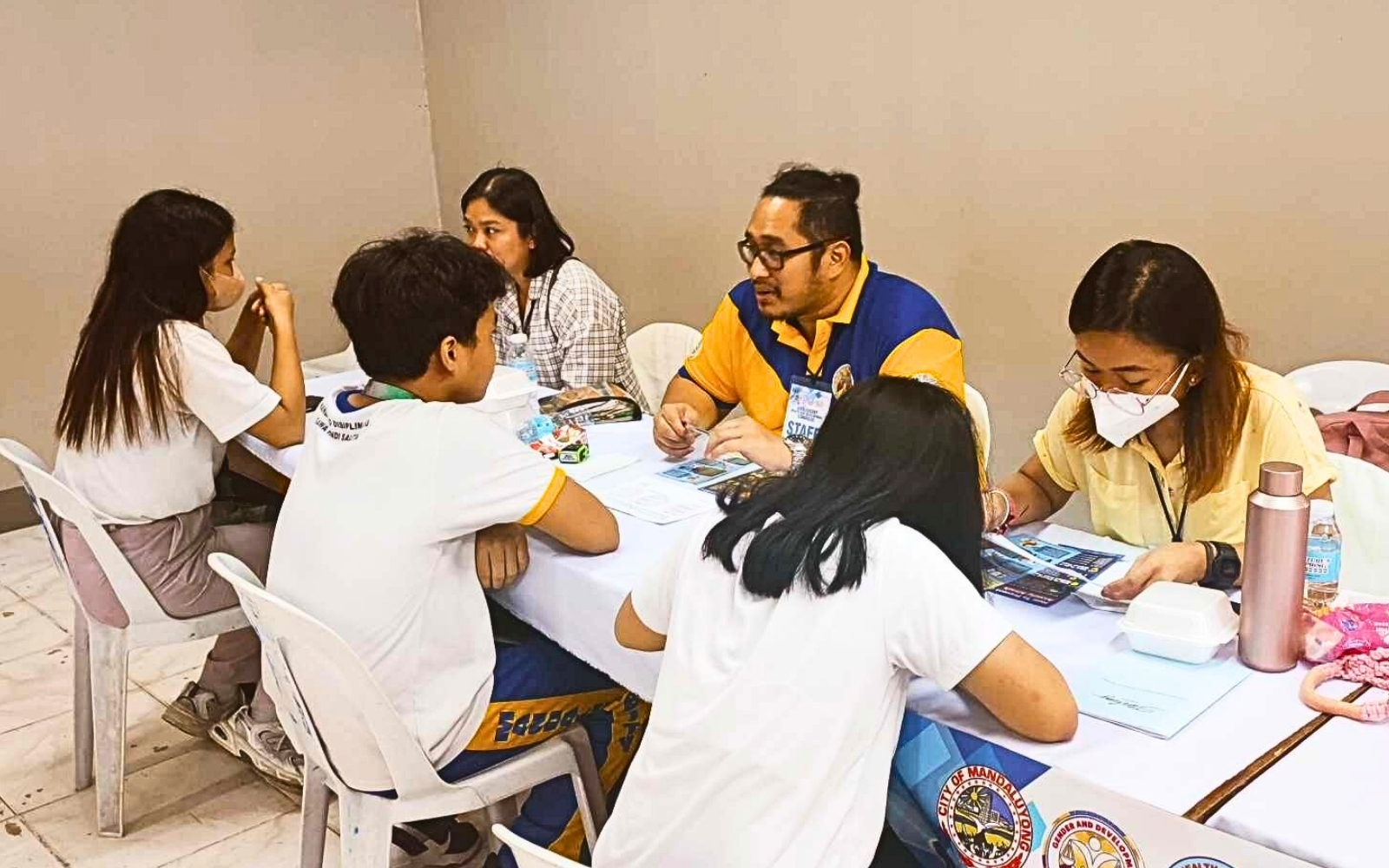
The city also runs the Healthy Young Ones (HYO) lecture series, an information, education, and communication program for adolescents aged 10 to 19. The series covers eight modules, including puberty, sexual health, sexual orientation and gender identity, sexually transmitted infections, human immunodeficiency virus (HIV), acquired immunodeficiency syndrome (AIDS), and personal safety and well-being.
Over the past three years, with support from TCI, the Mandaluyong City AHD Program unit, in collaboration with the City Population Development Office, has implemented the lecture series in schools.
Youth Leading Youth
The city also strengthened the role of the Sangguniang Kabataan (SK). Mandaluyong trained SK officials and barangay youth leaders as peer educators, allowing them to share AYSRH information in ways that feel familiar and credible to their peers.
The city also encouraged SK leaders to act as governance partners. With access to resources and the authority to design programs, they launched youth-centered activities that complement the AHD Program, address physical and mental health concerns, and reduce stigma around seeking care. This approach connected formal governance with community action and ensured that youth voices shaped services.
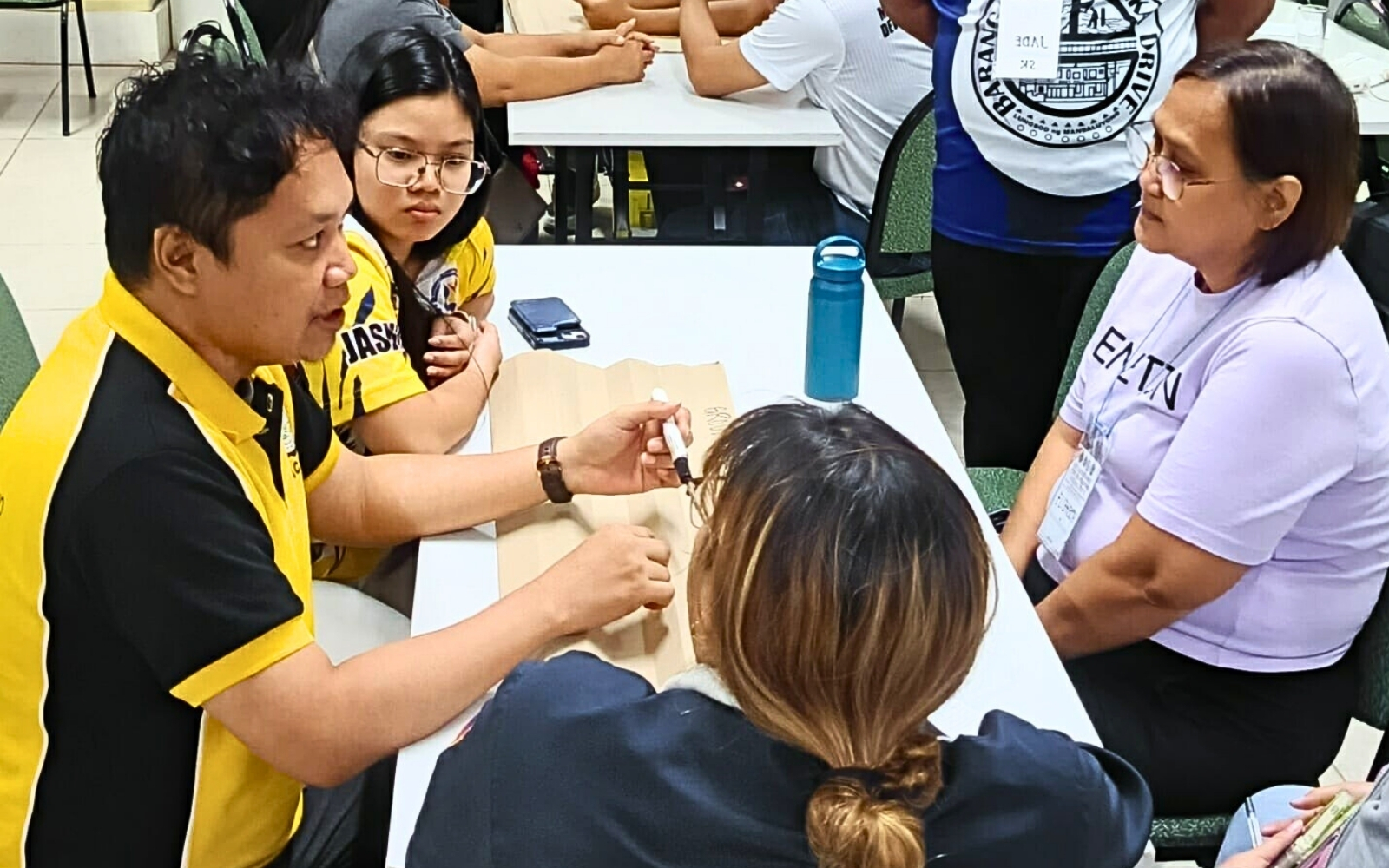
Building Adolescent-Friendly Services
Mandaluyong recognized that adolescents will only seek care if services feel safe and welcoming. The city trained health workers, teachers, and school personnel to strengthen communication skills, address personal bias, practice empathy, and protect confidentiality—alongside technical competencies.
The city also invested in program leadership. Managers of adolescent health programs joined Health Leadership and Management Training (HLMT) to clarify their vision, take ownership of adolescent pregnancy challenges, and work together on practical and sustainable solutions.
Signs of Change
Progress has not followed a straight line, and challenges such as poverty and migration remain. Still, the city has begun to shift its approach. Adolescents now take on roles as educators, leaders, and advocates. Health workers act as allies rather than gatekeepers. Communities increasingly understand that adolescent pregnancy is a public health issue that calls for care, understanding, and shared responsibility.
Recent data show early gains. ABR has stabilized at 13%, while modern contraceptive use has steadily increased to 24%. Although more work lies ahead, these results show that Mandaluyong has made real progress in protecting adolescents’ health and future.
For Mandaluyong, the story continues. But in the voices of young leaders and adolescents who now claim their right to health, one thing is clear: the cycle can be broken.
Negros Occidental Builds Stronger Nutrition Leadership
“The strength of our workforce, the potential of our children, and the dignity of every Negrense family are closely intertwined with the quality of life that we are able to provide.”
Negros Occidental is now part of Zuellig Family Foundation (ZFF)’s Nutrition Leadership and Equity Acceleration Program (NutriLEAP). Governor Eugenio Jose “Bong” Lacson, together with mayors and other local leaders and health officers in the province participated in the Executive Session under NutriLEAP, in partnership with Kain Tayo Pilipinas supported by the Philippine Business for Social Progress, last February 3, 2026. The session centered on building a shared understanding of challenges and creating strategies to improve nutrition outcomes in Negros Occidental.
Dr. Joyce Viar, Nutrition Director at ZFF, provided context and framing, guiding the participants through the activity’s objectives: to analyze the provincial nutrition landscape, articulate personal and shared leadership commitments, and co-create strategies for priority nutrition challenges. ZFF’s approach emphasized practical, systems-focused processes rather than abstract discussions, ensuring that every activity was tied to measurable action.
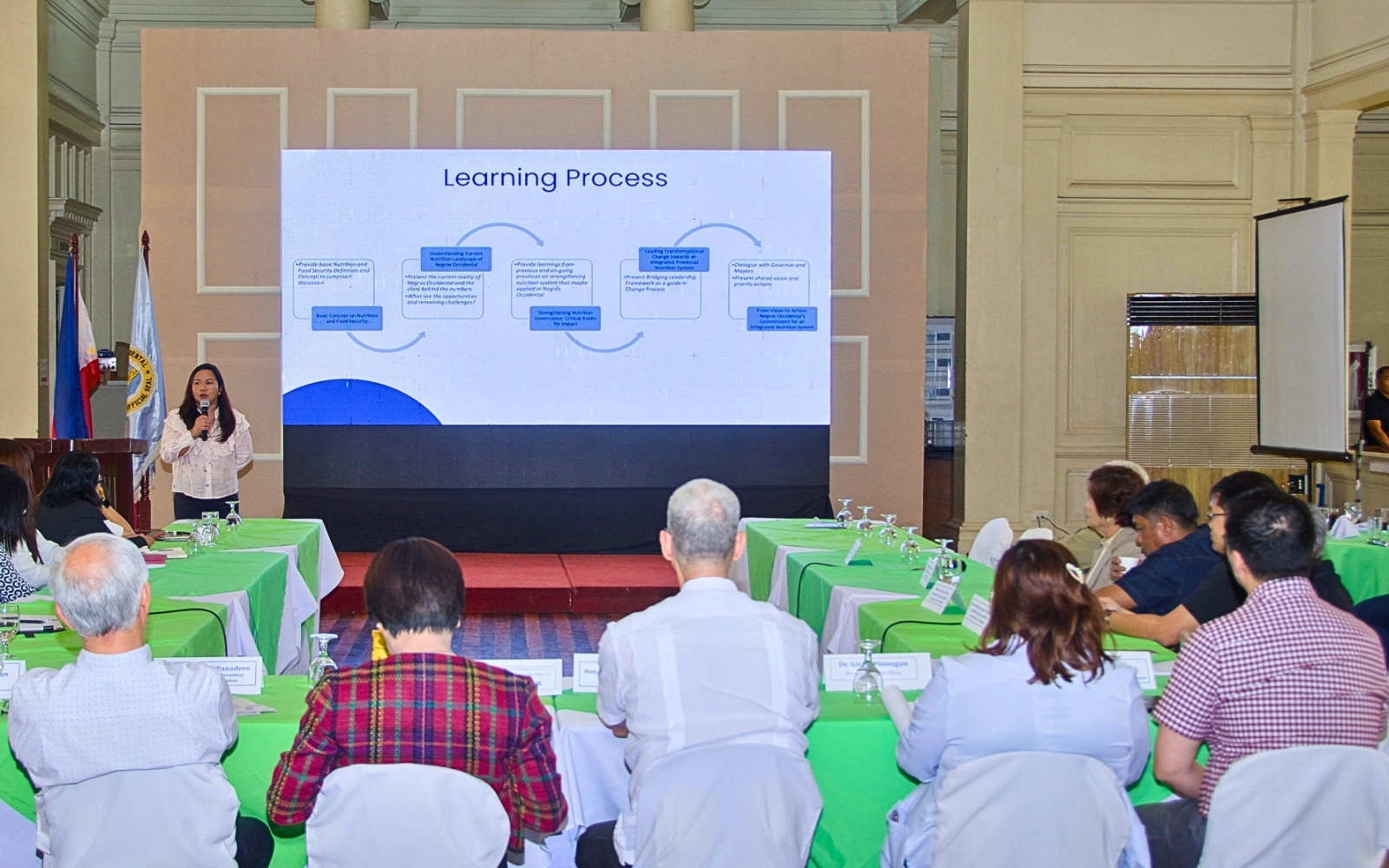
Participants reviewed key data on nutrition in the region. Western Visayas has a malnutrition prevalence rate of 6.4%, affecting 33,832 children aged 0–5. Negros Occidental is included among the 34 priority areas under the Philippine Plan of Action for Nutrition (PPAN). Within the province, stunting among children 0–5 stands at 3.15% (7,134 children), while wasting affects 0.59% (1,327 children) as of 2025. Areas with the highest stunting rates include Salvador Benedicto at 14.18%, the City of La Carlota at 8.74%, and Calatrava at 8.68%.
Austere Panadero, ZFF President and Executive Director, noted that undernutrition in the Philippines is decreasing, but the change remains minimal—around 1–2 percentage points annually for stunting. He introduced ZFF’s 8 Critical Knobs for Nutrition Governance, offering a structured approach to strengthen nutrition programs across multiple levels of government.
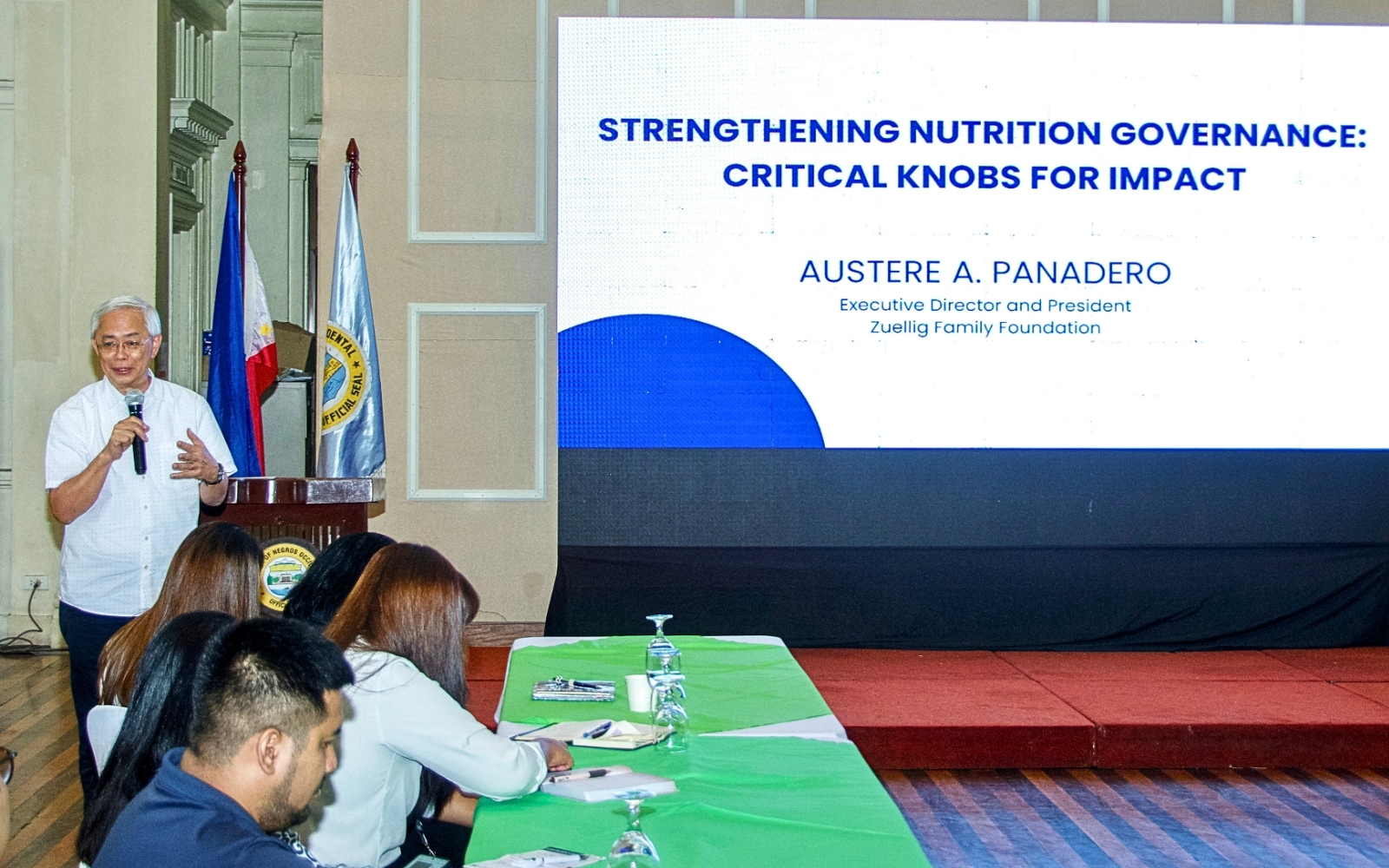
Using this framework, the session included a workshop facilitated by Hadji Balajadia, faculty at Ateneo de Davao University and ZFF consultant, where participants reflected on their priorities, defined guiding principles, and developed concrete action plans, from institutionalizing provincial nutrition programs and securing dedicated funding to coordinating multi-sector efforts at the city, municipal, and barangay levels.
Governor Lacson reinforced the process by translating these discussions into a rough provincial action plan. He stressed data-driven governance, investment in frontline health workers, sustained financing, and community-centered programs as critical steps toward a responsive, integrated nutrition system.
In closing, Governor Lacson said with encouragement, “Let this session mark not the end of our discussions, but the beginning of a deeper and more deliberate alignment of our efforts.”
Facing the Reality of Malnutrition: Tarlac Governor’s Deep Dive
As part of the Zuellig Family Foundation’s (ZFF) Nutrition Leadership and Equity Acceleration Program (NutriLEAP), Tarlac Governor Christian Yap took part in a guided community immersion, known as Deep Dive, to better understand the realities of malnutrition in the province’s most isolated areas. NutriLEAP, supported by the League of Provinces of the Philippines, helps provincial leaders strengthen leadership and governance to address malnutrition, especially among the most vulnerable communities.
The Deep Dive brought the Governor to two remote communities, where he met families and listened to their stories. “It was more intimate in terms of engaging with their needs and wants,” Governor Yap shared during the debrief. “I’m exposed to these areas, but to really get a deeper grasp on their health issues, their eating habits, their monetary habits, it’s different.”
Related article:
ZFF designed the Deep Dive to help leaders encounter the current reality “facially and frontally”. Guided by the Bridging Leadership Framework, the immersion encouraged reflection on how systems work—or fail—at the household level. For Governor Yap, the experience reinforced the urgency of improving nutrition, especially during the first 1,000 days (F1KD) of a child’s life.
“They really show how we can intervene in their growth, in their nutrition, in their health,” he said. “How can we extend services more proactively, especially in the critical stages of the young ones?”
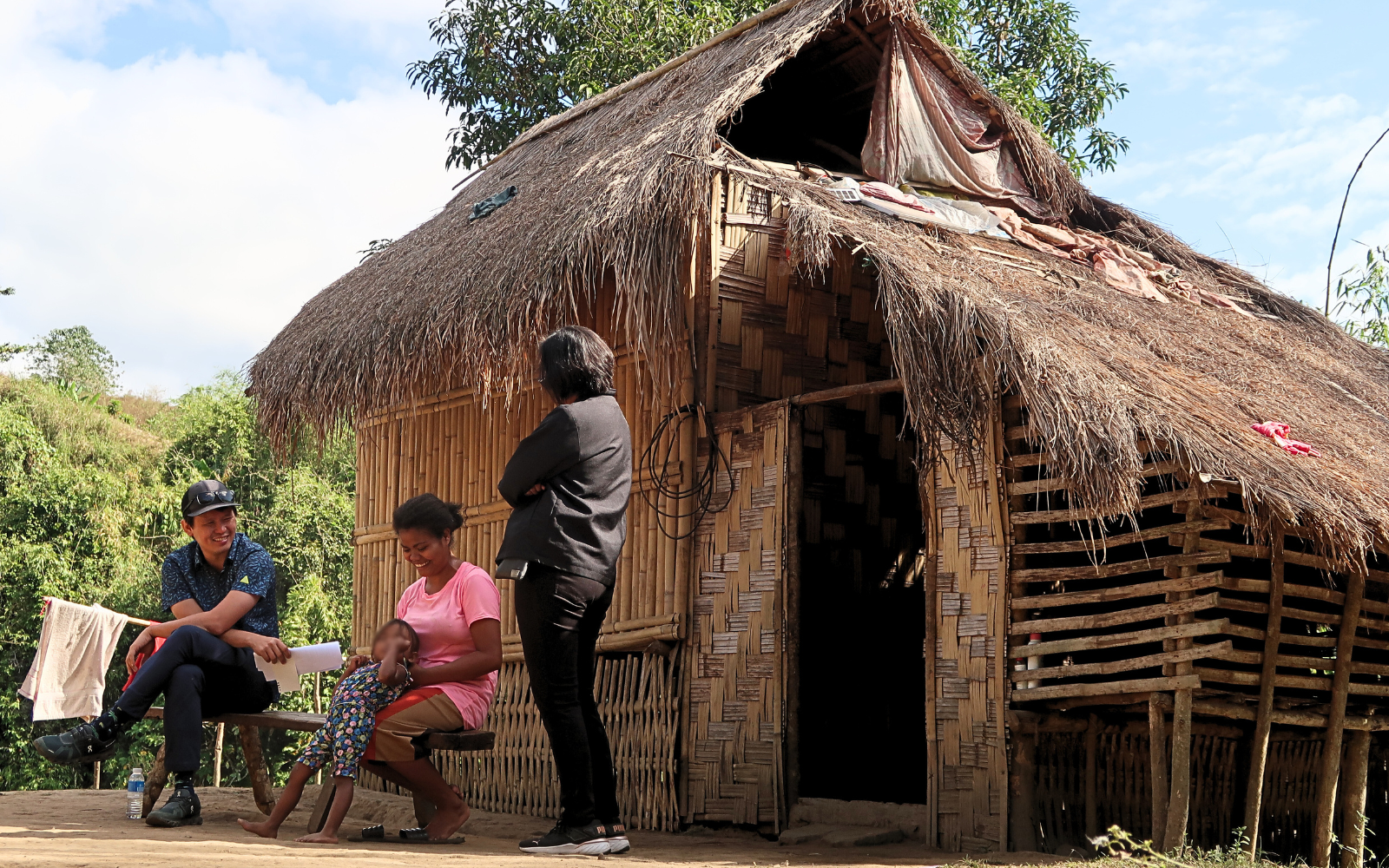
The visit also revealed how geography and access shape people’s choices. Families live hours away from the city, often without reliable roads, water, or sanitation facilities. Livelihoods depend on fishing or seasonal farm work. Despite these challenges, Governor Yap noticed opportunities to engage communities more effectively.
“There’s Facebook, there’s internet there,” he noted. “So how do we reach out? If there’s something to learn, they’re immediately engaged.”
At the same time, the Governor recognized that government resources are limited, making prioritization essential. “As much as we want to address everyone and help everybody, the resources are limited,” he said. “So how do you make it more efficient? How do you target those ones who are really in dire need?”
For him, the response must combine short-term and long-term actions. In the immediate term, he stressed the need to address severe malnutrition among young children.
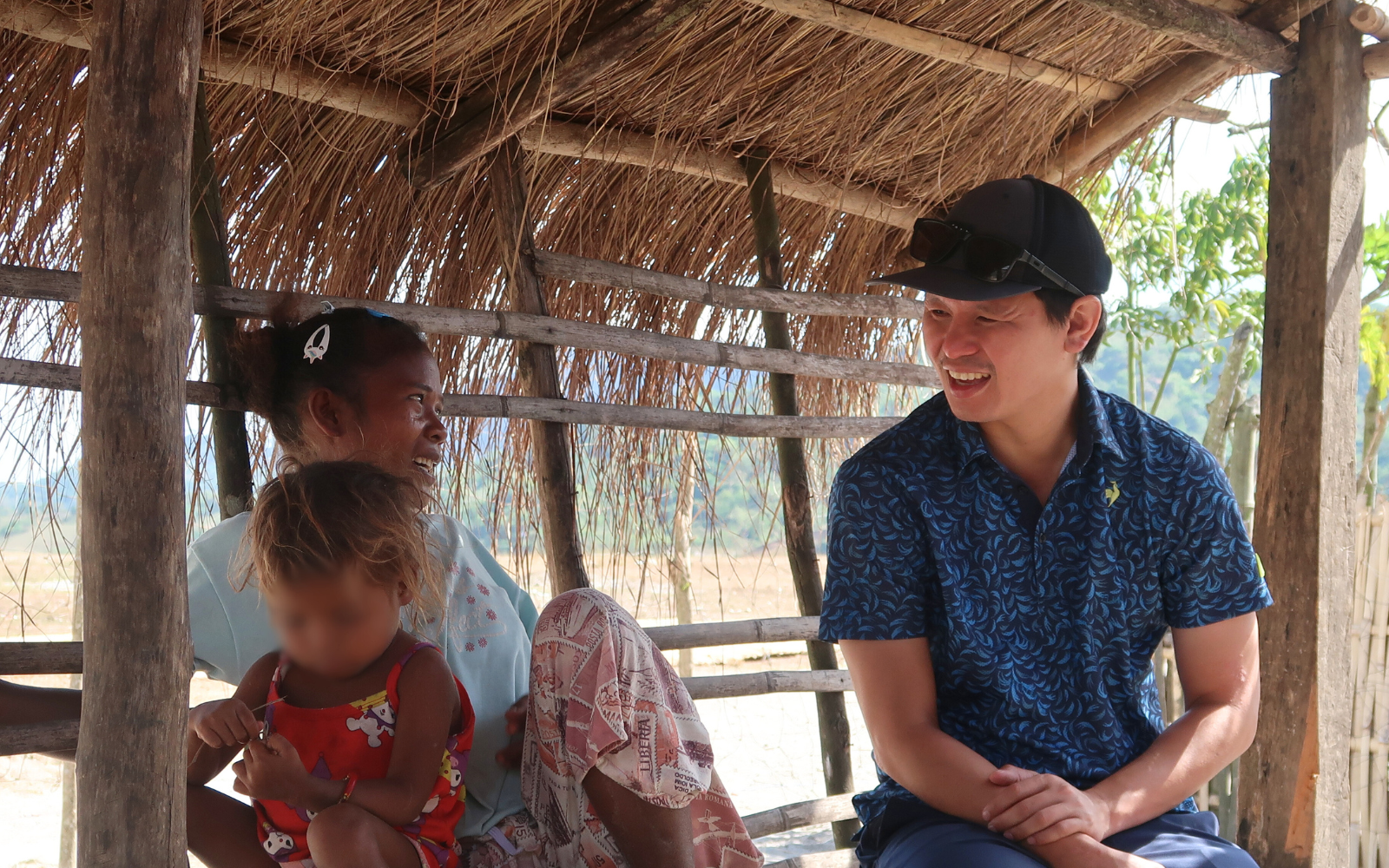
“We have to address it now,” Governor Yap said. “If we do not address it, this has long-term permanent effects on their growth.”
He pointed to sustained feeding programs as a necessary step, even as longer-term solutions take shape. “While we’re growing their gardens or building that behavior, we’re still addressing the current problem now,” he explained. “At least we have action plans in the next months that we can implement.”
Looking ahead, he shared a clear aspiration: to make nutrition a lasting priority in Tarlac, beyond any single administration. “I want it institutionalized,” he said. “Whoever is the governor, it’s a continuing social program targeting malnutrition.”
Through NutriLEAP, ZFF continues to support leaders in turning these encounters into action, grounded in reality, guided by empathy, and focused on building systems that truly work for those who need them most.
ZFF Strengthens Primary Care to Advance UHC in Benguet and Baguio City
The Zuellig Family Foundation (ZFF), through its Bayang Malusog Leadership and Governance Program (BMLGP), is helping strengthen primary health care (PHC) systems in Kapangan and Kibungan in Benguet and Baguio City to support the country’s Universal Health Care (UHC) goals.
Guided by the UHC Act’s vision of accessible, equitable, and people-centered health services, the Bayang Malusog Program focuses on improving local leadership and governance so that government units can effectively manage integrated primary care networks. To support this, ZFF provided partnership grants to the City Camp and Irisan District Health Centers in Baguio City, and the Rural Health Units of Kapangan and Kibungan in Benguet.
Related articles:
- Kibungan and Kapangan’s Grand March Toward a Shared UHC Vision
- Baguio City Advance Universal Health Plans
- Moving Forward with Health Reforms in Benguet
The grants help frontline health workers deliver better care through:
- Home visit kits for community outreach;
- Personal protective equipment (PPE) for Barangay Health Workers (BHWs);
- Essential primary health care equipment; and
- Health Information System (HIS) support.
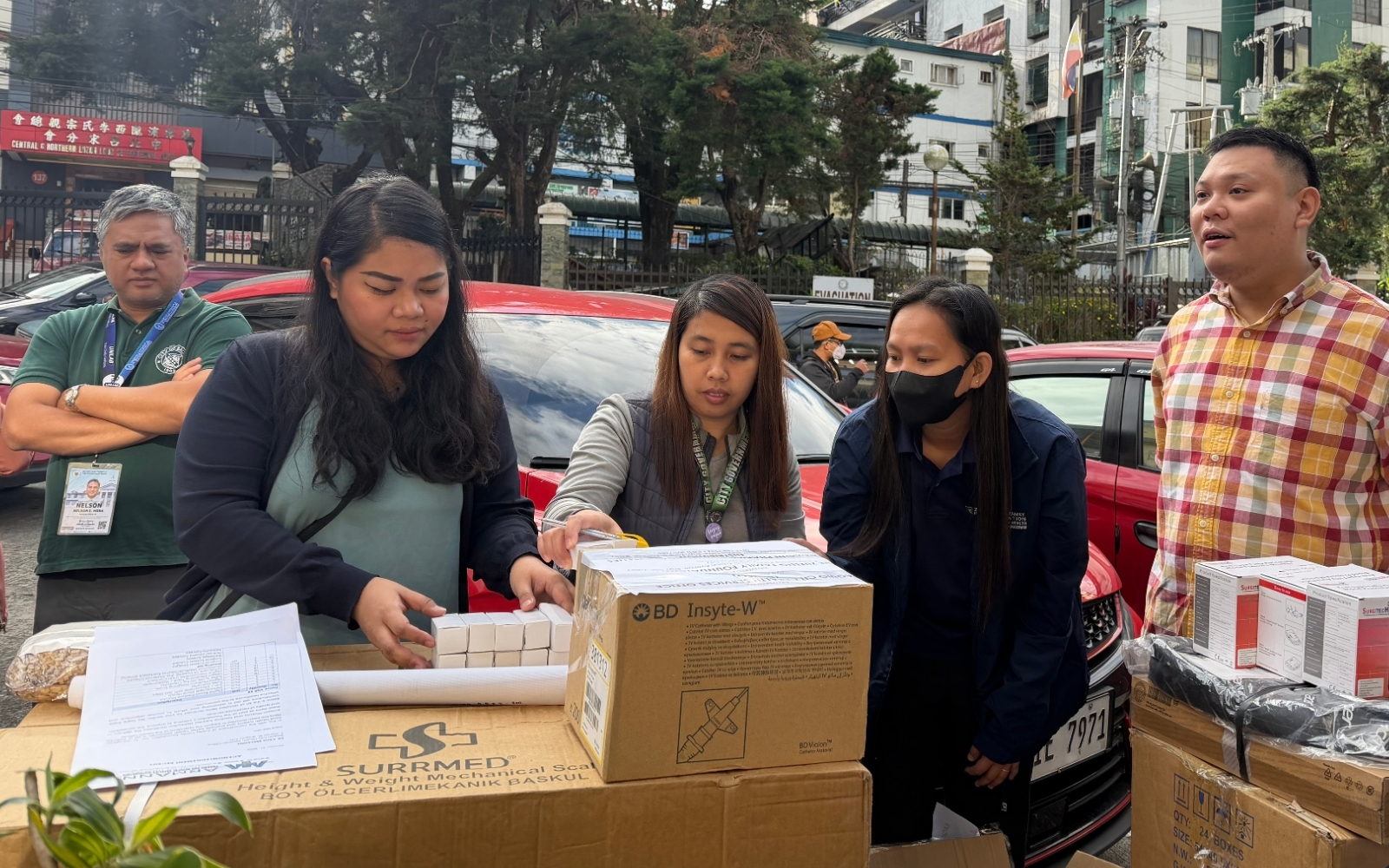
These tools enable continuous, quality care at the community level.
The turnover ceremony on January 22, 2025, marked a shared commitment to making primary care facilities strong and functional. Baguio City officials present were Dr. Ma. Lourdes Pakoy, Assistant City Health Officer; Dr. Nelson Hora, City Camp District Health Center Medical Officer; and Dr. Vanessa Fagcangan, Irisan District Health Center Medical Officer. From Benguet, Dr. Meliarazon Dulay and Dr. Jocelyn Legaspi, Provincial Health Officers, and Ms. Rubelyn Tomas, Senior Health Program Officer, attended, along with Dr. Joy Fermin, Municipal Health Officer of Kapangan. Department of Health-Cordillera Administrative Region officials Dr. Janice Bugtong and Dr. Mercedes Calpito also joined.
Through the Bayang Malusog Program, ZFF continues to show that strong leadership, well-supported health workers, and integrated primary care systems form the foundation of UHC—ensuring every Filipino family can access quality, responsive, and people-centered health services.
Banner photo: Provincial Health Office of Benguet
Authors: Joan Kidatan, ZFF BMLGP Associate for Baguio City
Branches of Hope: A Mayor’s Story of Jamindan, Capiz
For years, Mac Artur Luces Valdemar carried the weight of public service with him, as a son, a pharmacist, and a mayor trying to respond to the needs of his people.
As a former mayor of the municipality of Jamindan in Capiz, he shares that a turning point in his leadership came when he participated in the Municipal Leadership and Governance Program (MLGP) from 2017 to 2019, a collaborative initiative implemented by the Department of Health (DOH), the University of the Philippines Visayas (UPV), and the Zuellig Family Foundation (ZFF). What began as just an effort to look into the local health system of the municipality became a deeper learning journey that reshaped how he understood leadership, governance, and service.
“I joined MLGP hoping to improve our local health programs,” Valdemar said. “But I left with so much more than tools and templates.” MLGP challenged him to work differently—with partners, communities, and institutions—teaching him to lead not from above, but beside the people he served. This approach, part of the Bridging Leadership framework, became central to how he governed Jamindan.
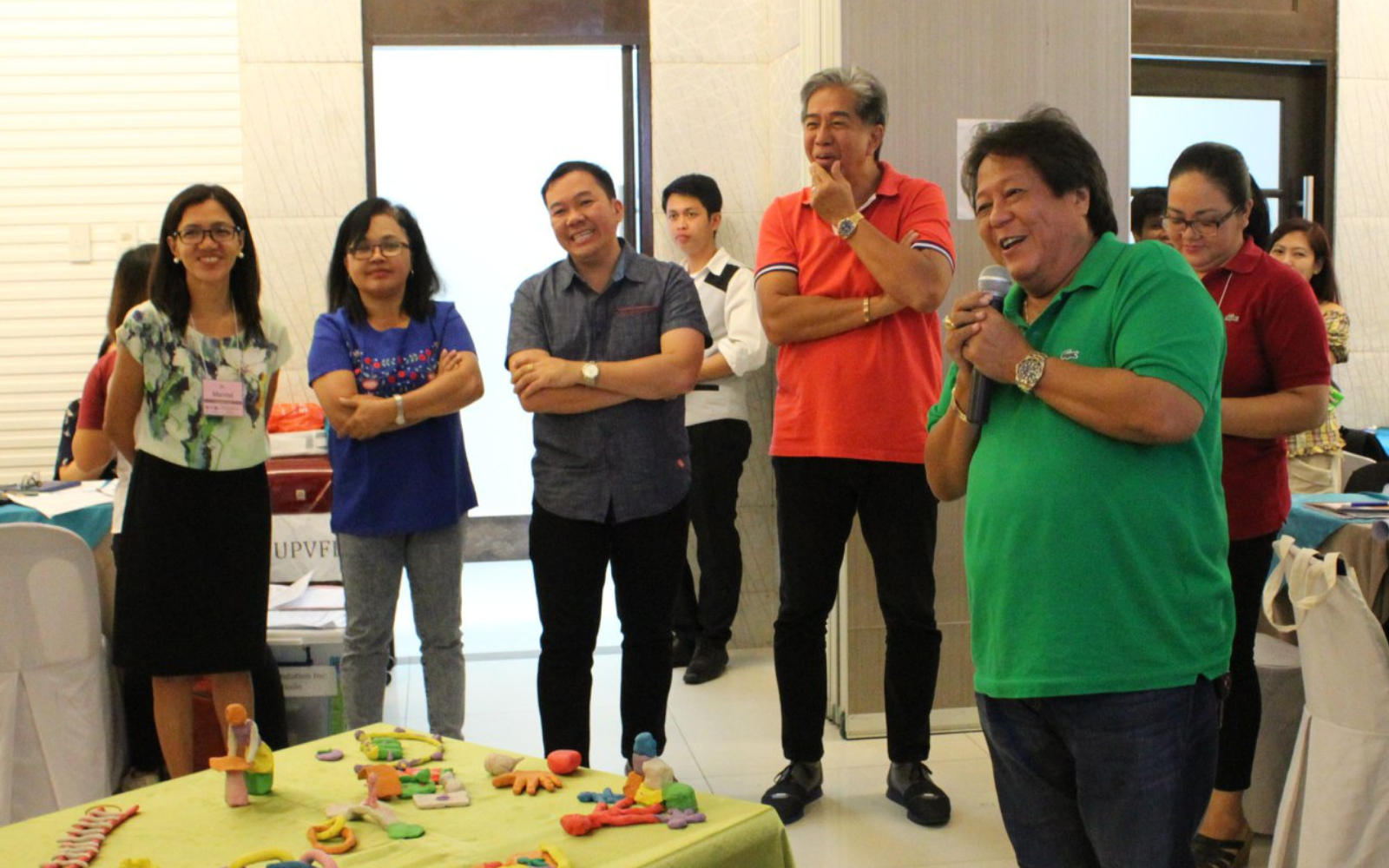
Jamindan’s identity, he often explained, is rooted in story and memory. Local lore traces the town’s name to Chieftain Amindan and the Hamindang Tree. According to elders, the tree grew from an act of sacrifice made to protect the community. Over time, it stood as a living marker of strength, endurance, and collective responsibility. From the name “Hamindang” came “Jamindan,” a reminder that the town was built not by one person, but through shared struggle and care. Like the tree that withstood storms and seasons, Jamindan grew slowly—nurtured by the hands of generations.
This story shaped how Valdemar viewed leadership. Jamindan, a landlocked first-class municipality in Capiz, is composed of 30 barangays and around 40,000 people, many living in far-flung and mountainous areas. It is home to Panay Bukidnon indigenous communities whose traditions continue to guide community life. To him, every Jamindanganon was like a branch, leaf, or root of the Hamindang Tree—each playing a role in keeping the whole strong.
When he assumed office in 2016, the health data revealed painful realities. Several barangays had no functioning health stations. Families lived with hypertension and diabetes without steady access to medicine. Animal bite cases were high, maternal care was limited, and undernutrition among children was widespread. “These weren’t just statistics,” he said. “These were stories of suffering.” His MLGP learning helped him see the numbers as human lives needing care and attention.
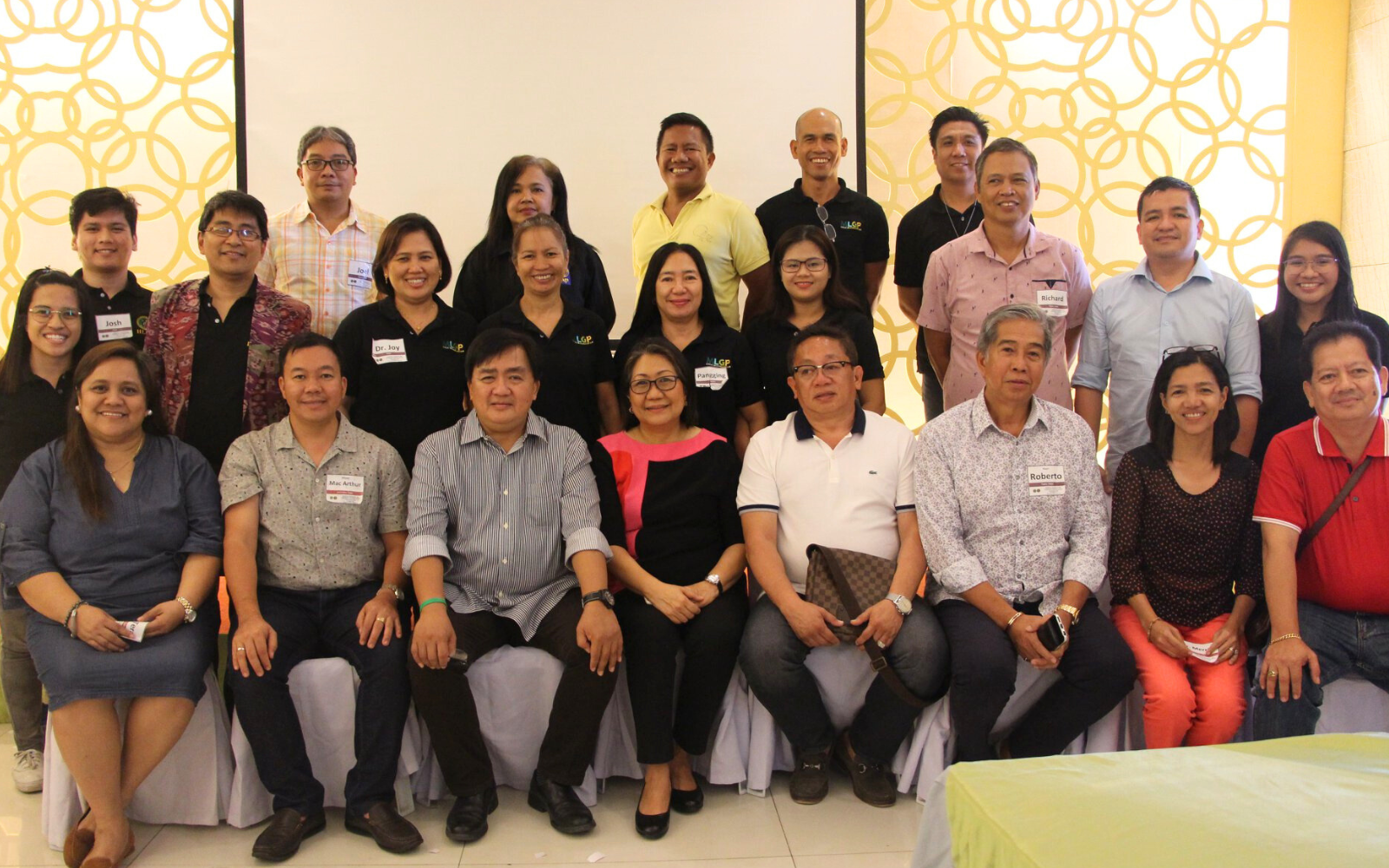
Guided by the MLGP roadmap, the local government placed health at the center of its work. Valdemar often returned to a simple belief: “Kalusugan ay kayamanan. Serbisyong makatao, para sa tanan.” Under this lens, Jamindan invested in health facilities and services that reached even the most remote communities. Barangay Health Stations were built and rehabilitated, and the province’s first licensed Municipal Primary Care Facility was established. Ongoing projects such as the birthing clinic and Super Rural Health Unit II were designed to serve geographically isolated and disadvantaged areas, including indigenous barangays.
Health services became more accessible and more humane. Free consultations, laboratory tests, maintenance medicines, and X-ray services were offered. A dedicated Animal Bite Treatment Center, opened in December 2020, began providing free anti-rabies vaccination. “No patient in Jamindan should skip treatment because of poverty,” Valdemar said, echoing a principle he linked back to his MLGP experience.
The influence of MLGP extended beyond health. The same data-driven and participatory approach guided programs in disaster preparedness, social protection, education, agriculture, and livelihood. Through the Serbisyong Makatao Program, a wide range of government services—from medical and dental care to legal assistance and civil registration—were brought directly to communities, free of charge. Each activity, he shared, felt “like a fiesta,” because it strengthened trust and reminded people that the government could be present and caring.
“The true measure of our success lies in the stories of our people,” he said—stories of mothers who now receive prenatal care close to home, children who stay in school because they are fed and vaccinated, and senior citizens who finally have access to free medicines.
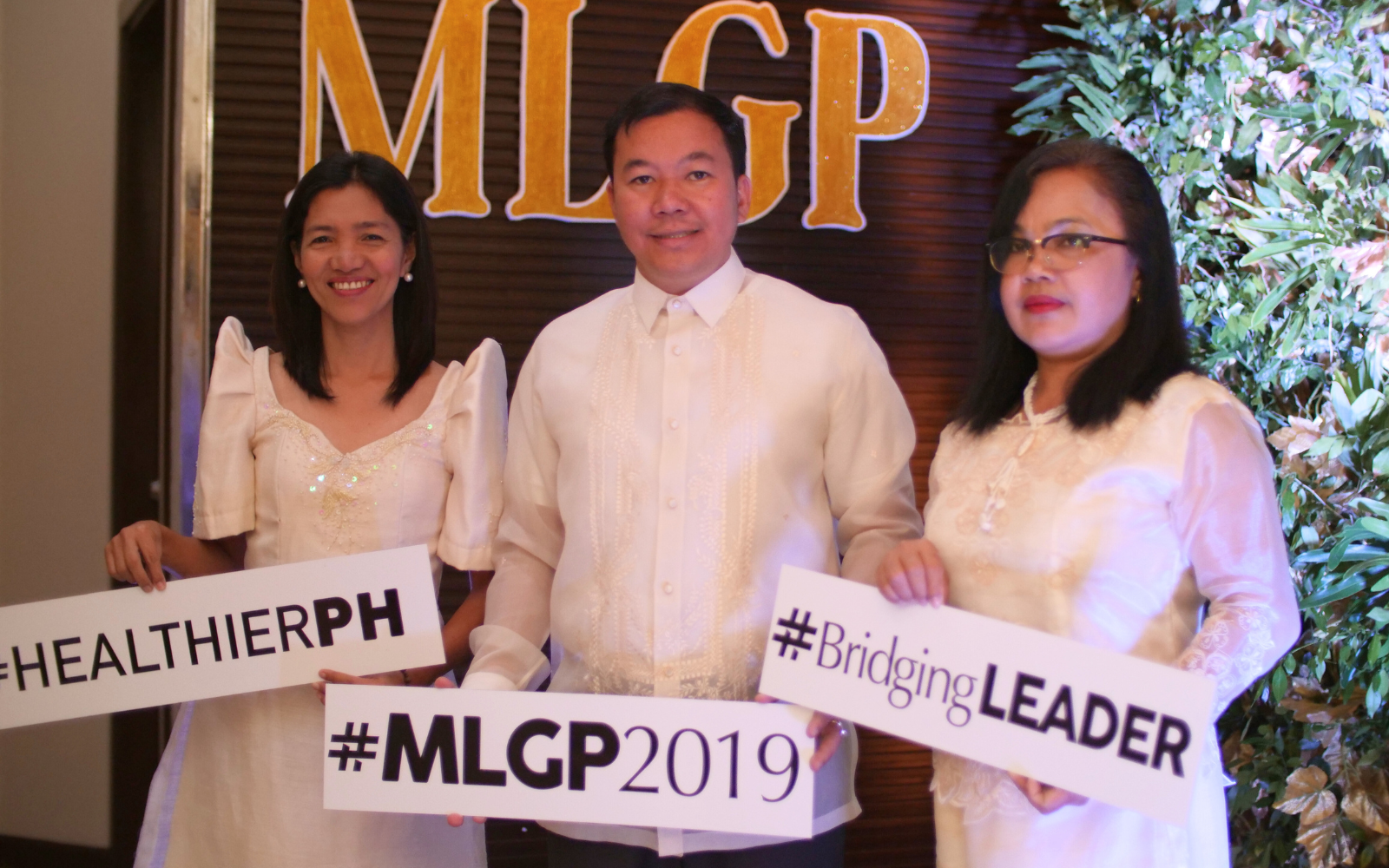
As he concluded his term, he reflected on what his MLGP journey helped make possible. “We are not leaving unfinished business,” he said. “We are leaving behind a system, a culture, and a people who now know what responsive governance looks like.” For him, MLGP was the foundation that strengthened his belief that health is not a privilege, but a right.
He continues to hold on to a vision of Jamindan much like the Hamindang Tree—deeply rooted, inclusive, and resilient. A place where no mother fears childbirth, every senior lives with dignity, and every child grows up healthy. It is a vision guided by the lessons he carries from his engagement with MLGP.